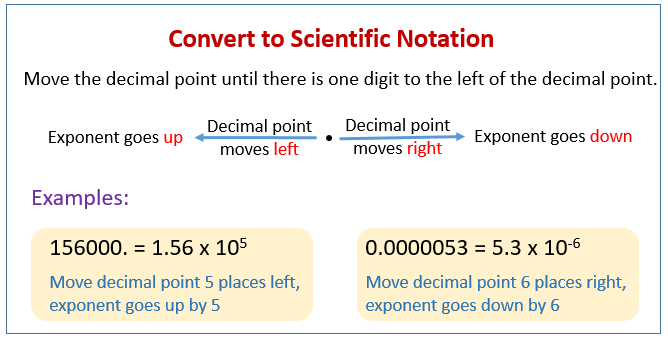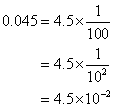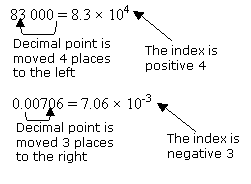Convert A Number To Scientific Notation
How to Convert A Number To Scientific Notation?
Very large or very small numbers are usually written in scientific notation:
A × 10n where 1 ≤ |A| < 10 and n is an integer.
Example:
2 350 000 = 2.35 × 106
0.000 875 4 = 8.754 × 10–4
The following figures show how to convert decimals to scientific notation. Scroll down the page for more examples and solutions.

To convert a number into scientific notation:
Method 1
Rewrite the number as a product of a number A such that 1 ≤ |A| < 10 and a power of 10.
Example:
64 000 = 6.4 × 10 000
= 6.4 × 104

Method 2
Step 1 : Shift the decimal point of the number A to the left or to the right until 1 ≤ |A| < 10
Step 2 : Count the number of places that the decimal point has moved. The count would be the index n. If the decimal point was moved to the left then n is positive. If the decimal point was moved to the right then n is negative.
Example:

Example:
Write each of the following numbers in scientific notation:
a) 734 000 b) 0.00685
Solution:
a) 734 000 = 7.34 × 10 000 = 7.34 × 105
or

b) 0.00685 = 6.85 × ![]() = 6.85 × 10-3
= 6.85 × 10-3
or

The following video shows more examples of converting numbers to scientific notation
Learn how to convert in and out of scientific notation in these step by step examples
Try the free Mathway calculator and
problem solver below to practice various math topics. Try the given examples, or type in your own
problem and check your answer with the step-by-step explanations.

We welcome your feedback, comments and questions about this site or page. Please submit your feedback or enquiries via our Feedback page.